
Los Angeles teenagers Randy Wolfe, bassist Mark Andes, and vocalist Jay Ferguson formed The Red Roosters in the mid-1960s. The band was put on hiatus when Wolfe’s step-father Ed Cassidy moved the family to New York in search of work. In New York, Wolfe played guitar with Jimi Hendrix in Jimmy James and the Famous Flames.
Hendrix christened Wolfe Randy California, to differentiate him from his bass player (known as Randy Texas). When Hendrix was spotted by Chas Chandler and offered a record deal in the UK, he invited Wolfe to join him. Wolfe’s parents refused to allow their fifteen-year-old son to move to the UK.
Introduction
Back in California Wolfe reunited with Andes and Ferguson to form Spirit. With Cassidy on drums and keyboardist John Locke, Spirit were signed by Lou Adler and released their self-titled debut in 1968.
Spirit were notable for their eclectic approach. Their music reflects the psychedelia of the mid-late 1960s, but Cassidy and Locke came from jazz backgrounds. California’s guitar is steeped in blues and acid rock – not surprising for someone who played with Hendrix. Tthey also dabble in folk-rock like ‘Nature’s Way’. There was also an eclectic disparity of ages within Spirit – at the time of their debut, California was 16 and Cassidy was 44.
After 1970’s Twelve Dreams of Dr. Sardonicus the group fractured. Andes and Ferguson formed Jo Jo Gunne, California went solo, while Cassidy and Locke recorded 1972’s Feedback with ring-ins. Andes later played with Canned Heat and Heart, while Ferguson scored a solo hit with ‘Thunder Island’ and turned to composing for TV, most notably the theme for the US version of The Office.
Spirit reformed in 1975 with California and Cassidy but failed to make the same impact. They broke up after California drowned saving his son from a riptide off the coast of Hawaii in 1997.
Spirit Album Reviews
Spirit
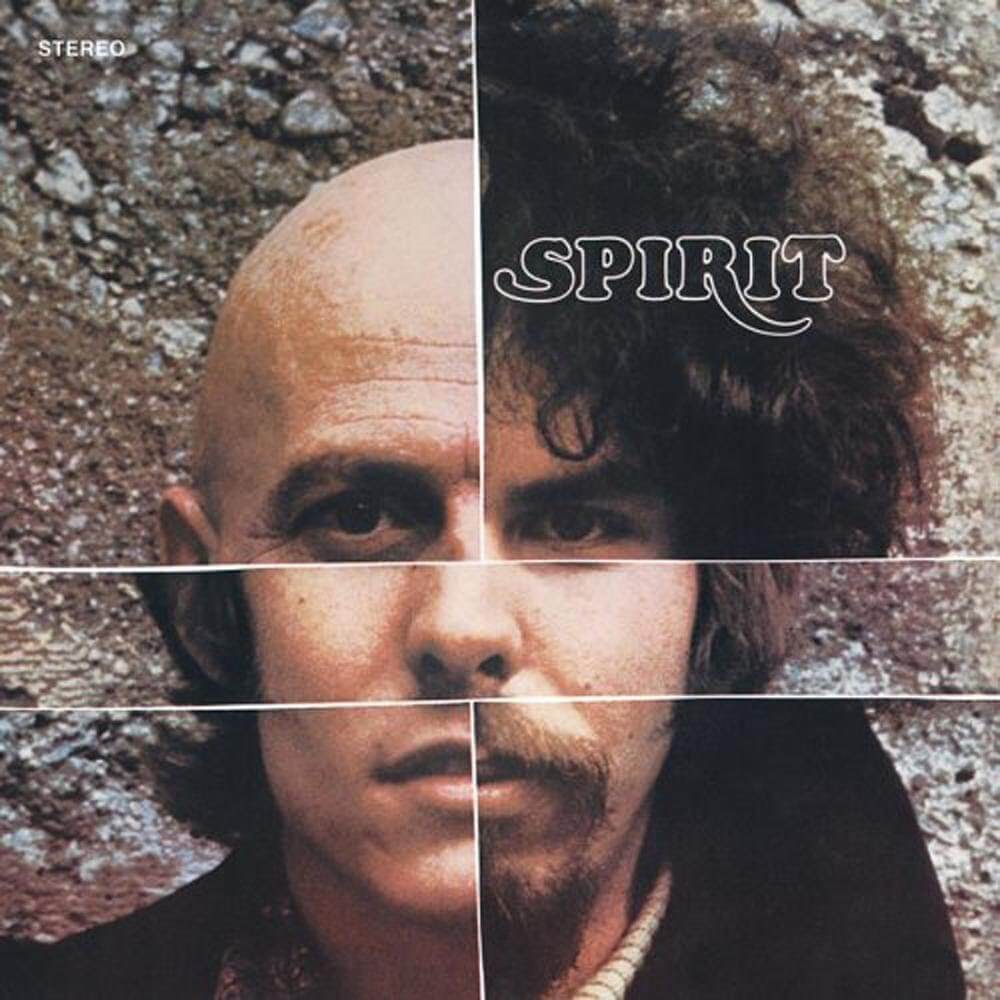
1968, 7/10
Spirit’s debut album was recorded with arranger Marty Paich, who adds strings. It’s dominated by Ferguson’s pop/rock writing, although Randy California wrote the memorable instrumental ‘Taurus’ and John Locke’s ‘Elijah’ closes the record with ten minutes of jazz jamming. Ferguson has some good pop tunes, but he isn’t a very emotionally engaging singer or writer; particularly noticeable on the awkward ‘Straight Arrow’, written after watching a bravura performance by Mark Andes’ actor father. The group would improve as California took more of a creative role; he’s only 16 here. Even so, his guitar leads are often the most attention-grabbing aspect of the group’s music, especially when he’s double-tracked.
Ferguson’s standout song is the opener ‘Fresh-Garbage’ – Led Zeppelin also performed it when they opened for Spirit in 1968. There’s also a Zeppelin connection to California’s memorable instrumental ‘Taurus’, where multiple lawsuits have explored the similarities to Jimmy Page’s introduction to ‘Stairway to Heaven’. The first side is much stronger than the second side, although ‘The Great Canyon Fire in General’ shoehorns the group’s jazzy inclinations into a concise and enjoyable song. It leads nicely into ‘Elijah’, although the CD reissue with two versions of ‘Elijah’ on the track-list isn’t ideal.
Like Spirit’s other early records, their debut is fascinatingly eclectic but also inconsistent.
The Family That Plays Together
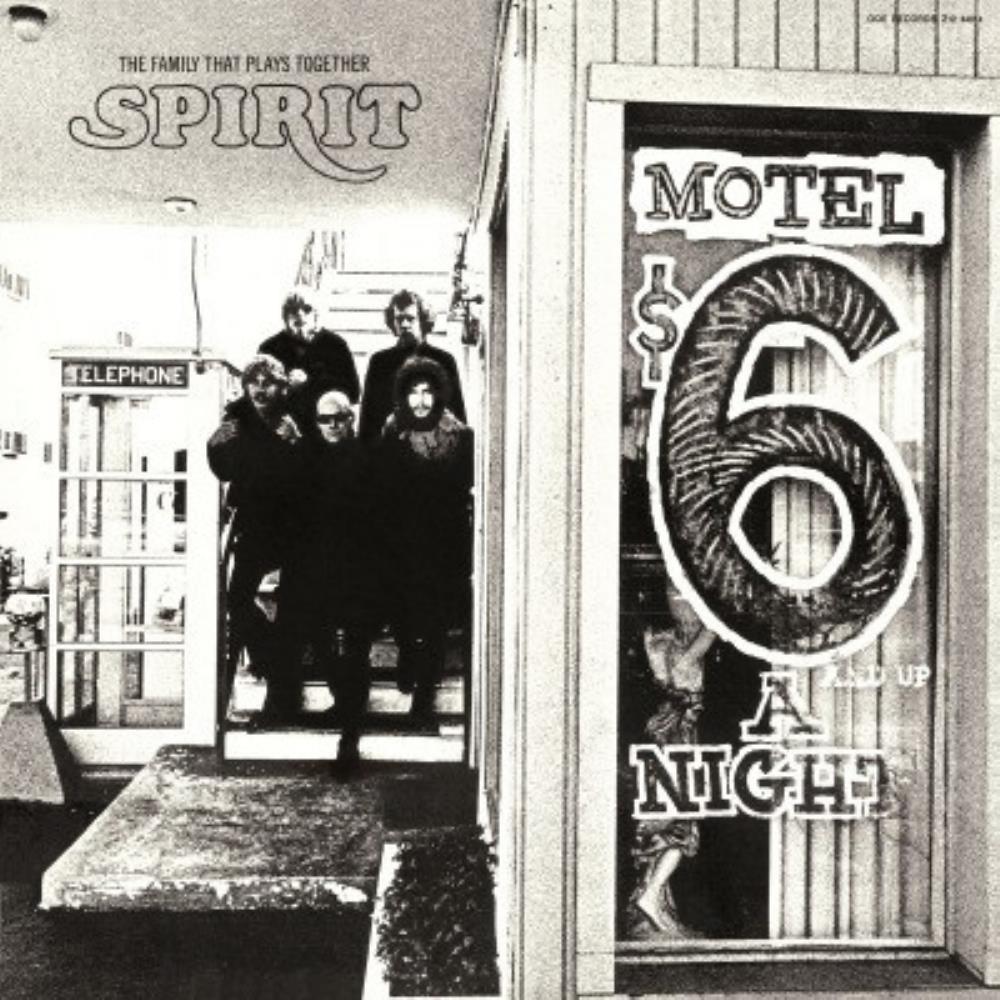
1968, 7.5/10
At the time of their second album, Spirit were all living together in a house in Topanga Canyon. The title riffs on the slogan “the family that prays together”. It’s a step forward from their debut – it’s more focused and more hard-rocking. Like Spirit’s other early records it mainly functions as a build-up to their masterpiece.
Randy California is much more involved here, writing nearly half the songs including the lead-off track and top 30 single ‘I Got A Line On You’. His voice is more emotional than Ferguson’s, and they harmonise together nicely on tracks like ‘Darlin’ If’. California also contributes the bizarre ‘Jewish’, where he solemnly recites a Hebrew prayer over fuzz guitar and dramatic percussion. Ferguson’s ‘Aren’t You Glad’ starts as a simple slice of sunshine pop before the band transform it, while ‘Dream Within a Dream’ and the mellow ‘Silky Sam’ are also highlights.
The Family That Plays Together is a solid second record from Spirit, focusing on succinct songs and showcasing the burgeoning writing skills of Randy California.
Clear
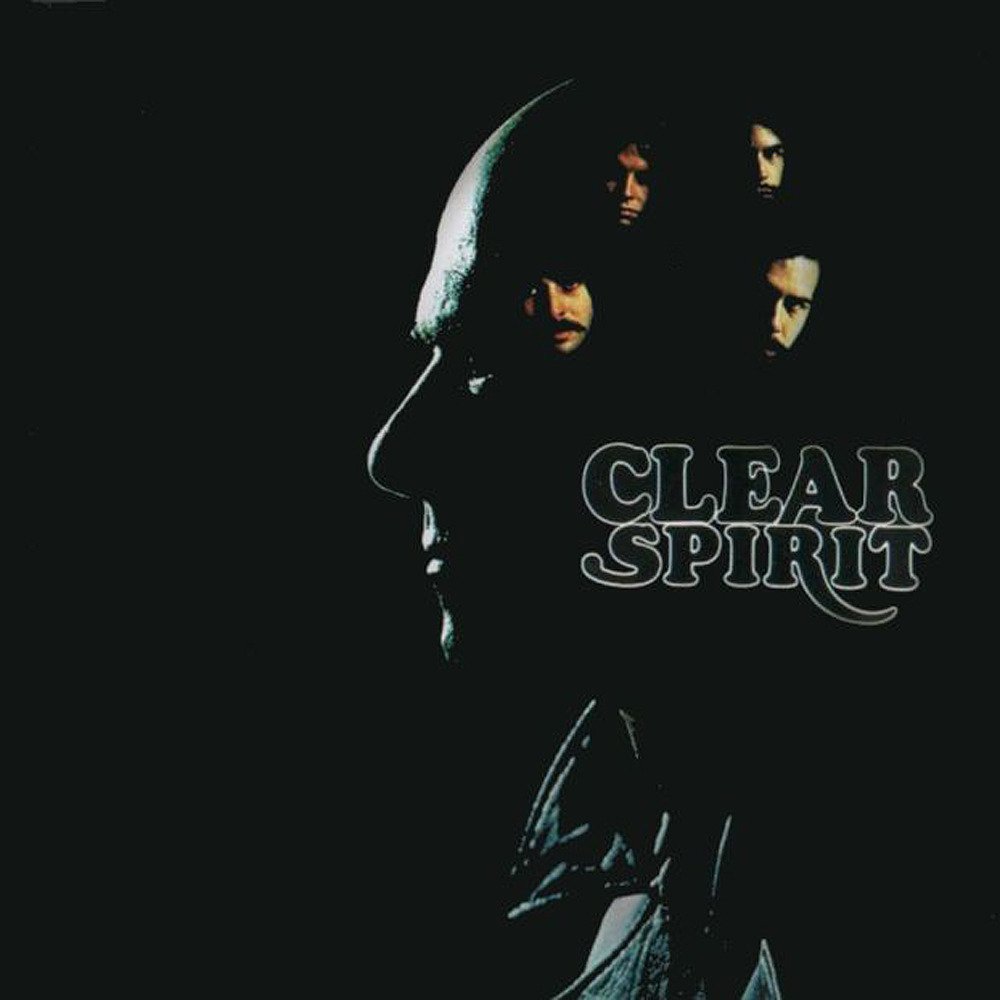
1969, 7/10
While working on The Family That Plays Together, Spirit were approached by director Jacques Demy to write music for his movie Model Shop. The film wasn’t a success, and the soundtrack wasn’t released until 2005. Because the soundtrack wasn’t released, parts of it were recycled for 1969’s Clear, which perhaps explains the number of instrumentals here.
Like Spirit’s previous two records Clear starts strongly, with the rockers ‘Dark Eyed Woman’ and ‘Apple Orchard’, as well as Ferguson’s ‘Ground Hog’. The instrumentals drag a little, but Ferguson’s ‘New Dope In Town’ is a good closer, mixing the band’s jazzy jamming with a solid pop hook. The CD version includes the banned, and under-melodic, single ‘1984’ and its bizarre b-side ‘Sweet Stella Baby’, about an overweight fan. The outtake ‘Coral’ is dedicated to the 11-year-old sister of famous groupie Sable Starr – Sable was dating Randy California at the time.
Clear is often the most overlooked of Spirit’s first four albums. Despite the instrumentals, Spirit carve out a distinctive sound shoehorning their jazz chops into rock songs.
Twelve Dreams of Dr. Sardonicus
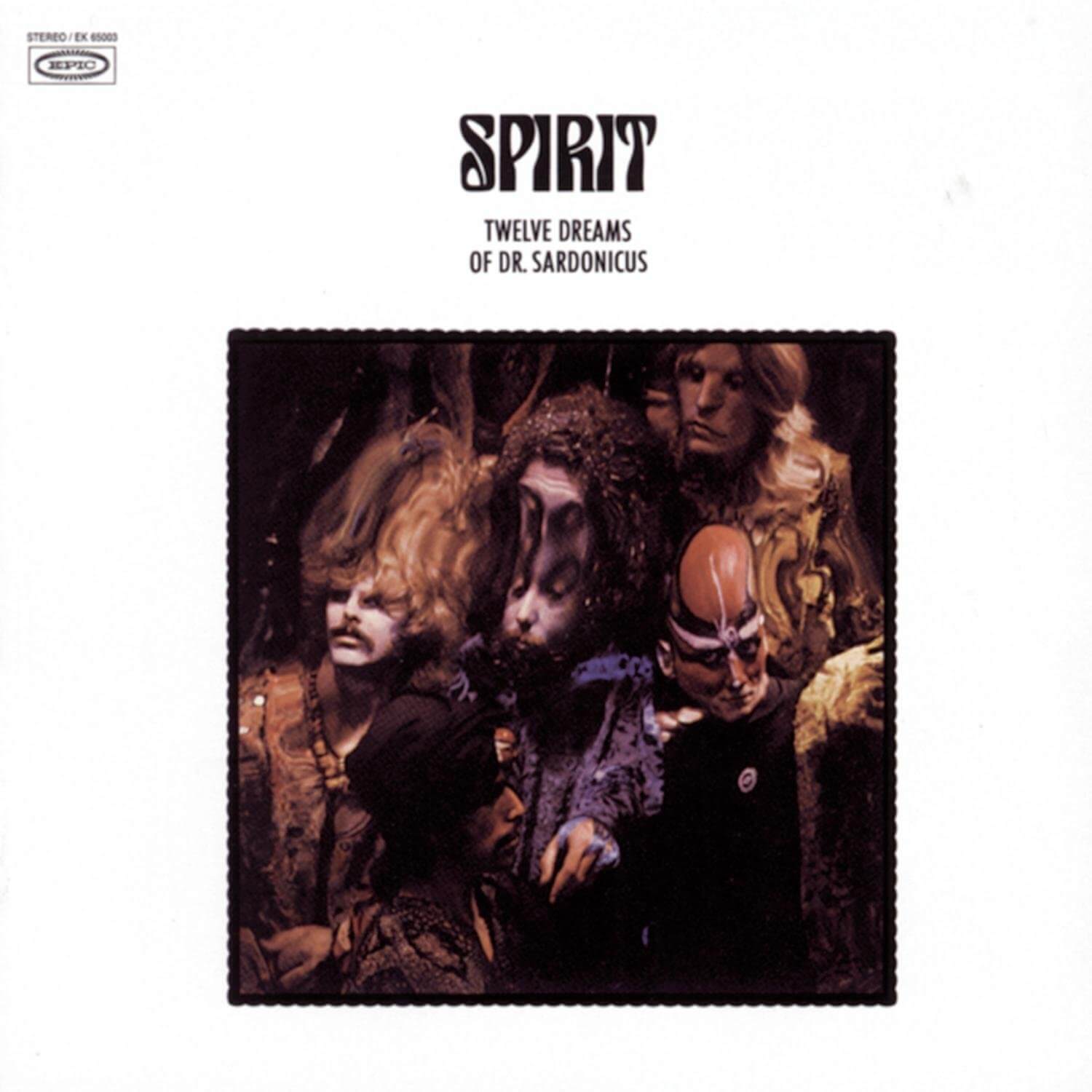
1970, 9/10
Twelve Dreams of Dr. Sardonicus marks a power shift in Spirit, with California writing the majority of the songs. It’s an important change – Ferguson’s gimmicky songs are better suited to second banana status behind California’s more emotionally engaging material. California and Ferguson often sing together, and their voices blend nicely. The production, from David Briggs, is also a big upgrade, giving the band a dense psychedelic sound. Twelve Dreams of Dr. Sardonicus was initially unsuccessful, precipitating Spirit’s initial split. It was only belatedly recognised as the band’s masterpiece, staying in print while their other albums were deleted.
The single was California’s ‘Nature’s Way’ – it’s a simple arrangement, but an interesting chord structure, and the spontaneity and passion of Ferguson and California’s dual lead vocals. Even though he’s demoted from primary songwriter here, Ferguson writes some of his most memorable songs. ‘Animal Zoo’ has a great singalong chorus (“much too fat and a little too long”) and ‘Mr Skin’ is a fun tribute to Cassidy. California’s opening ‘Prelude-Nothing to Hide’ is impressive, erupting from folksy beginnings into a jazzy rocker. Even when the material flags a little, the record’s well-paced, and it closes strongly with the rocker ‘Morning Will Come’ and the suitably grandiose ‘Soldier’ with another great tandem vocal from California and Ferguson.
While Sardonicus was an artistic breakthrough, it was the last recording for the classic quintet. The lack of success for Twelve Dreams caused Spirit to splinter into three factions – California went solo, Andes and Ferguson formed Jo Jo Gunne, while Cassidy and Locke soldiered on for a final album before breaking up.
Kapt. Kopter and the (Fabulous) Twirly Birds – Randy California

1972, 8/10
Mark Andes and Jay Ferguson left Spirit in early 1971, and Randy California followed in July. Depressed by the death of Jimi Hendrix, he jammed in Topanga Canyon clubs like The Corral. Kapt. Kopter and the (Fabulous) Twirly Birds is a Hendrix-inspired jam record – a three-piece band rips through a selection of songs, mostly covers. A number of different players appear in the rhythm section, but notable guests include Noel Redding (under the pseudonym “Clit McTorius”) and Ed Cassidy (as “Cass Strange”).
It seems unfair to rate this record of jams above Spirit’s daring and expansive first three albums, but it’s an entertaining listen and a great showcase for California’s guitar playing. Two California originals open the record and they’re both great – ‘Downer’ and ‘Devil’ both showcase California’s bluesy guitar and sandpaper vocals. It’s fun to hear Paul Simon’s ‘Mother and Child Reunion’ transformed into a hard rocker, but the most daring of the covers is The Beatles ‘Rain’. It’s stretched out to eight minutes, with California’s vocals distorted and Redding providing propulsive bass. The CD reissue includes three bonus tracks – two more California originals and a cover of ‘Walkin’ the Dog’.
There’s nothing too deep on Kapt. Kopter, but it’s fun to hear California unleashed into the spotlight.
The Adventures of Kaptain Kopter & Commander Cassidy in Potato Land
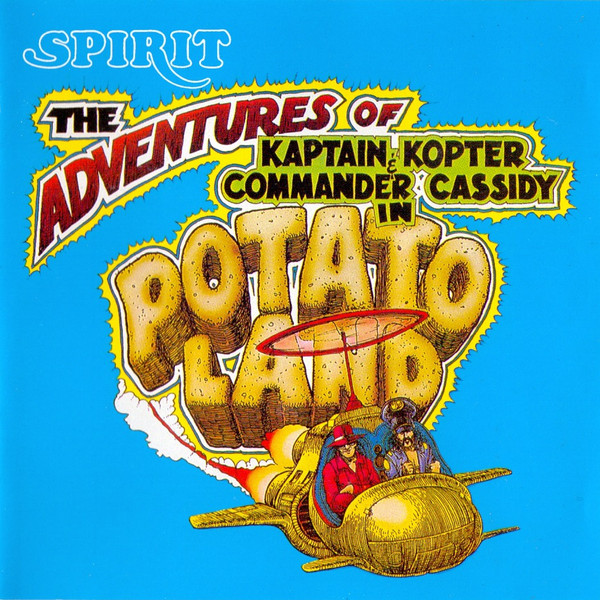
1973/1981/2006, not reviewed
California and Cassidy were scheduled to release this concept album, featuring songs like ‘Potatoland Prelude’ and ‘Fish Fry Road’, in 1973, but it was cancelled. An abridged and partially reworked version was belatedly released in 1981, while a full version was released in 2006 as The Original Potato Land. I’m intrigued but unsure whether I want to opt for the 1981 version or the exhaustive 2006 version. Both versions are erroneously credited to Spirit, even though Spirit were on hiatus.
Spirit of ’76
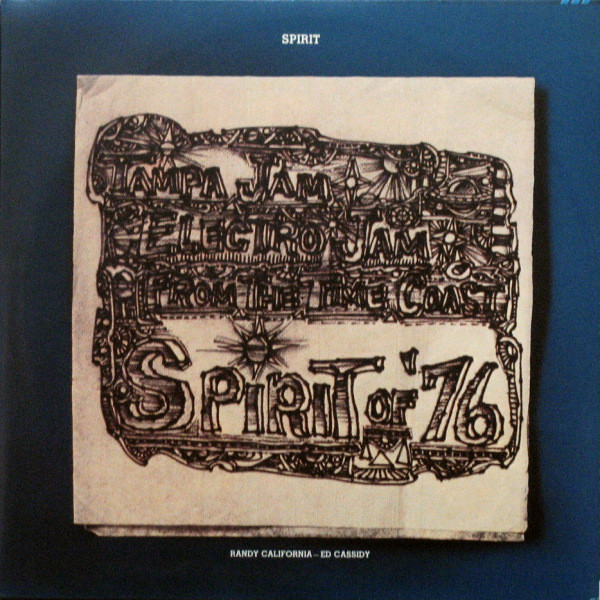
1975, not reviewed
California and Cassidy reformed Spirit in 1974. Records like the double album Spirit of ’76, 1976’s Farther Along (which also features Andes and Locke), and 1977’s Future Games have their admirers. but failed to match the impact of their initial tenure. Spirit continued to release albums intermittently until 1996’s California Dream, released a month before California’s death.
Ten Best Spirit Songs
Nature’s Way
I Got A Line On You
Prelude / Nothing To Hide
Fresh-Garbage
Animal Zoo
Mr. Skin
Dark Eyed Woman
Aren’t You Glad
Taurus
Soldier
Back to 1960s Album Reviews….
3 Comments
Leave a Reply
Related Pages
About
Aphoristic Album Reviews is almost entirely written by one person. It features album reviews and blog posts across a growing spectrum of popular music.
Review Pages
Read about the discographies of musical acts from the 1960s to the present day. Browse this site's review archives or enjoy these random selections:
Blog Posts
I add new blog posts to this website every week. Browse the archives or enjoy these random selections:

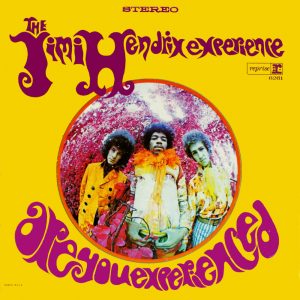
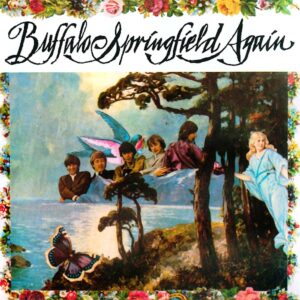
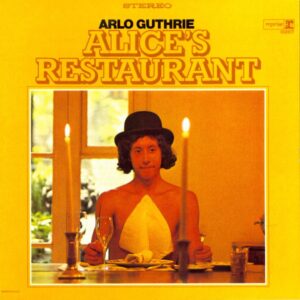
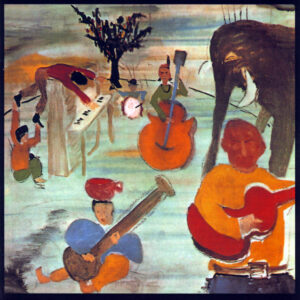
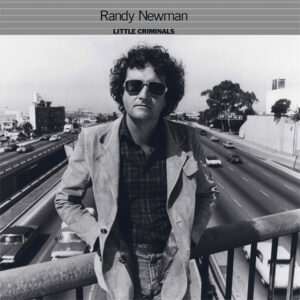
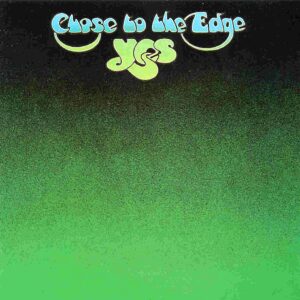
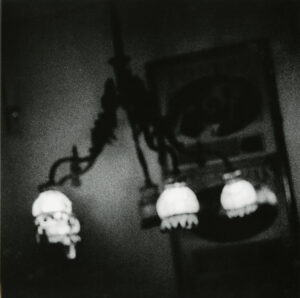
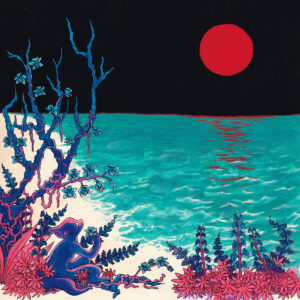
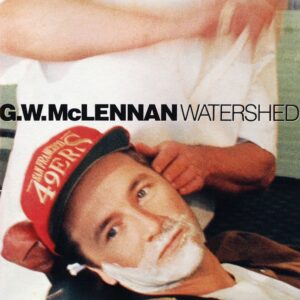
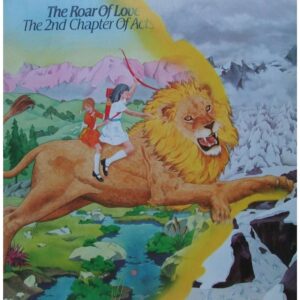
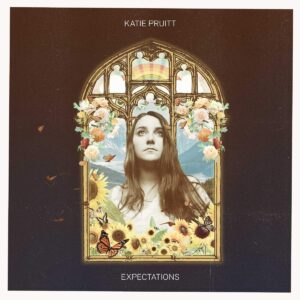

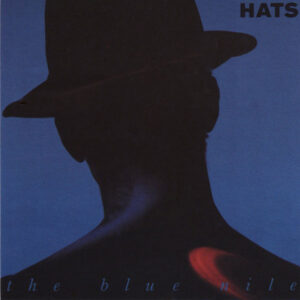
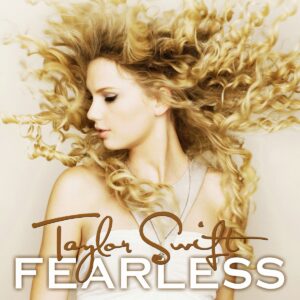
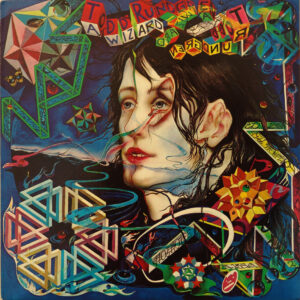
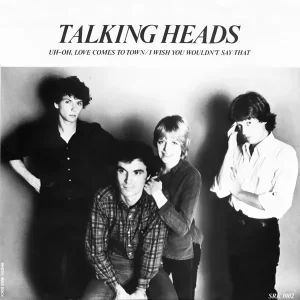
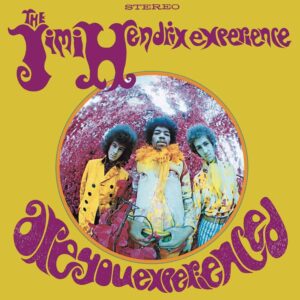
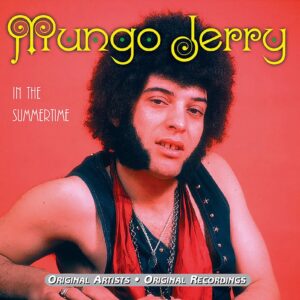
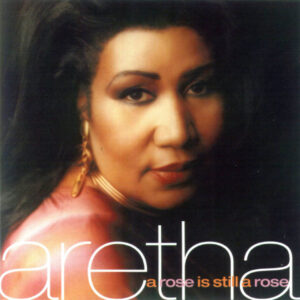
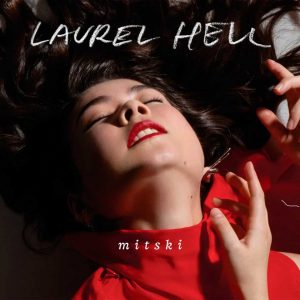




I’ve tried to get into this band but it never really kicks in for me, with the exception of I Got a Line on You. They’re one of those 1960s or 70s California bands, like Quicksilver Messenger Service, that have the one fantastic song that I love, but nothing else that I was crazy about. Friends tell me that Dr. Sardonicus is great, so maybe I should try listening to that again.
If you like I Got A Line On You, Sardonicus is totally the best bet. Randy California wrote Line and he’s all over Sardonicus – wrote most of the songs where before he was more of a sideshow.
To dismiss Spirit’s mid 70’s albums Spirit of 76, Son of Spirit and Future Games is criminal.
Spirit performed superbly as a trio with Randy California at the helm and the quality of the songs on the majestic Spirit of 76 are by far the best of their entire catalogue including their 60’s and yes, dare I say it? Sardonicus too, although that is a very fine album.